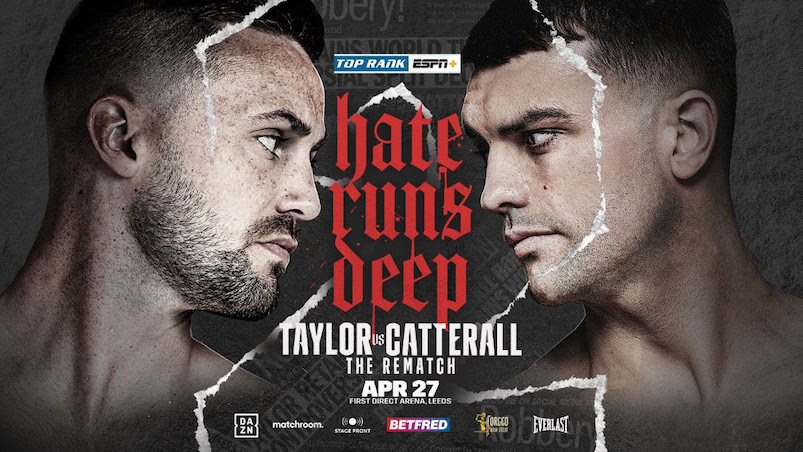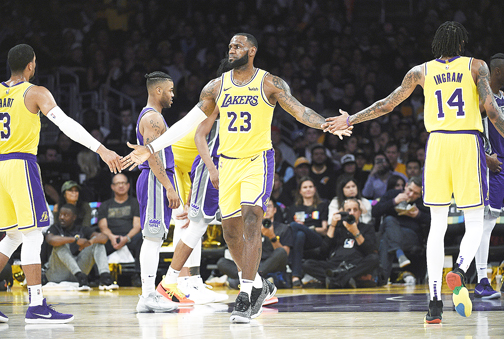Will LeBron’s outsized presence help or hurt a young Lakers core still finding itself in the NBA?
One of the plays that most excited me during the Lakers’ preseason happened when LeBron James and Lonzo Ball connected for an alley-oop against the Warriors. James held the ball on the left wing and tossed it up for his teammate after Ball ran his defender into a Kyle Kuzma pick. It was their first action together — Ball had been out for 105 days with an injury — and an exciting glimpse into what this new Lakers team could be.
After the game, Ball was asked what he looked forward to about playing with James. He said:
“I’m looking forward to having a lot of fun, and win a lot of games. You know, he’s the best player in the world. I just do what I can to help him out.”
Ball also mentioned the goal for the team is to play fast, and that he would be getting the ball to James a lot. And James, as the alley-oop showed, will be returning the favor.
But Ball’s choice of words — that, “I just do what I can to help him out” — showed more than Ball’s selfless nature as a point guard; it captured the difficulty of playing with a superstar like LeBron.
Last April, James Jones — who was with James on the Heat and the Cavaliers, and who is known as one of James’ favorite teammates — was asked what it was like to play with James. Jones said LeBron’s versatility and vision meant he could make players like Richard Jefferson and Channing Frye successful, but everyone had to become role players in the system.
“Every player in this league gets to this level because they’re extremely talented, just super-talented. And rarely can we make it to this level just being specialists. But when you’re playing with someone like LeBron, you have to specialize. Your ability to specialize allows him to be Mr. Everything. Your willingness to be a specialist allows him to dominate.”
Jones’ sentiments were echoed by Kevin Love, who recently talked about his struggles adjusting to playing with James. In 2014, Chris Bosh predicted that Love would struggle, because Bosh himself had the same problems when he joined the Miami Heat:
“Yeah, it’s a lot more difficult taking a step back, because you’re used to doing something a certain way and getting looks a certain way. And then it’s like, well, no, for the benefit of the team, you have to get it here.”
James epitomizes the problem of being a superstar, especially one on his level — the Warriors are lucky in this case. Though he’s as unselfish as they come, James, by the nature of his talent, demands attention and sacrifice from his teammates, even on a team with Dwyane Wadeand Bosh. The best way for any team with LeBron James to be successful is for James to run the show, for everyone else to fall in line, and, unless they’re as good as Wade, to become specialists for the benefit of the team.
That works well when the players who surround James are naturally limited and specialists by choice or necessity. James — with his vision, passing ability, and the attention he draws from defenses — is the ideal teammate for players like Mike Miller, Kyle Korver, Richard Jefferson, an older Ray Allen, and Jones.
James’ omnipresence only becomes a challenge when he’s paired with fellow stars like Bosh, Wade, Love, or Kyrie Irving. It’s been suggested as the reason Kawhi Leonard and Jimmy Butler may not want to team up with James when they become free agents. They are all superstars who are capable of being much more than sidekicks. James can play with those players, and he has shown that he can win with them. But James is such a gravity-distorting talent that a team can only be successful if those superstars are humble enough to take on a more complementary role.
James’ move to the Lakers presents a variation of the same problem. He naturally improves the team and puts a national spotlight back on one of the league’s most storied franchises, but he’s surrounded by talented youngsters, not veteran specialists ready to win now.
Brandon Ingram, Kyle Kuzma, Lonzo Ball, and, to an extent, Josh Hart, are still in the process of discovering their capabilities at the NBA level. What they need at this moment in their careers is the freedom and space to experiment, to fail and to grow, and to be trusted with the responsibility of leading a team.
The Lakers’ young core will obviously learn from James just by being in proximity to greatness and listening to him explain the game. But unless his mindset and role on the team changes drastically from Cleveland to Los Angeles, James’ arrival could stymie their development.
Beyond that, James’ arrival also changes the Lakers’ priorities. Even if James himself is patient, the Lakers are trying to build a team around him that’s capable of challenging in the present, which makes the development of young players even more difficult.
The Lakers’ acquisition of Rajon Rondo, for example, likely doesn’t happen without James, and it’s a move that could stunt the growth of at least one young Laker. Luke Walton announced in late September that Rondo would be starting over Ball, and though Rondo is considered a strong mentor, his presence should mean Ball will be spending less time on the court. Ball improved in the second half of last season, and now he has been reduced to coming off the bench in his second year.
The situation is reminiscent of what D’Angelo Russell suffered with Kobe Bryant around. From a 2016 story with ESPN:
”We’re all about playing together now,” he says. “It’s not about one guy anymore. It’s about sacrificing for the team.” Adds Russell, “Kobe deserved every bit of attention he got in his last year, but there’s freedom in Kobe not being around.”
James is not Bryant, but the two are dominant presences as great players who warp everything around them. James, through no fault of his own, naturally impedes the growth of young players by the simple fact that he wants to win. There’s little space for mistakes on his teams, and mistakes are essential to growth in young players. James is the sun around which everything rotates.
The minute James arrived to the Lakers, their fortunes changed. They’re now being discussed as if they can make the Western Conference Finals — that’s the effect having the best player in the world has on a team. But his arrival also put the Lakers in win-now mode. As much as the young Lakers will learn from James and the pressures of having to win every game, they will also lose out by no longer having the responsibility that they used to share. Their years of self-discovery are over, or at least minimized. What they can do now is help James, as Ball said, and that means knowing their role.



